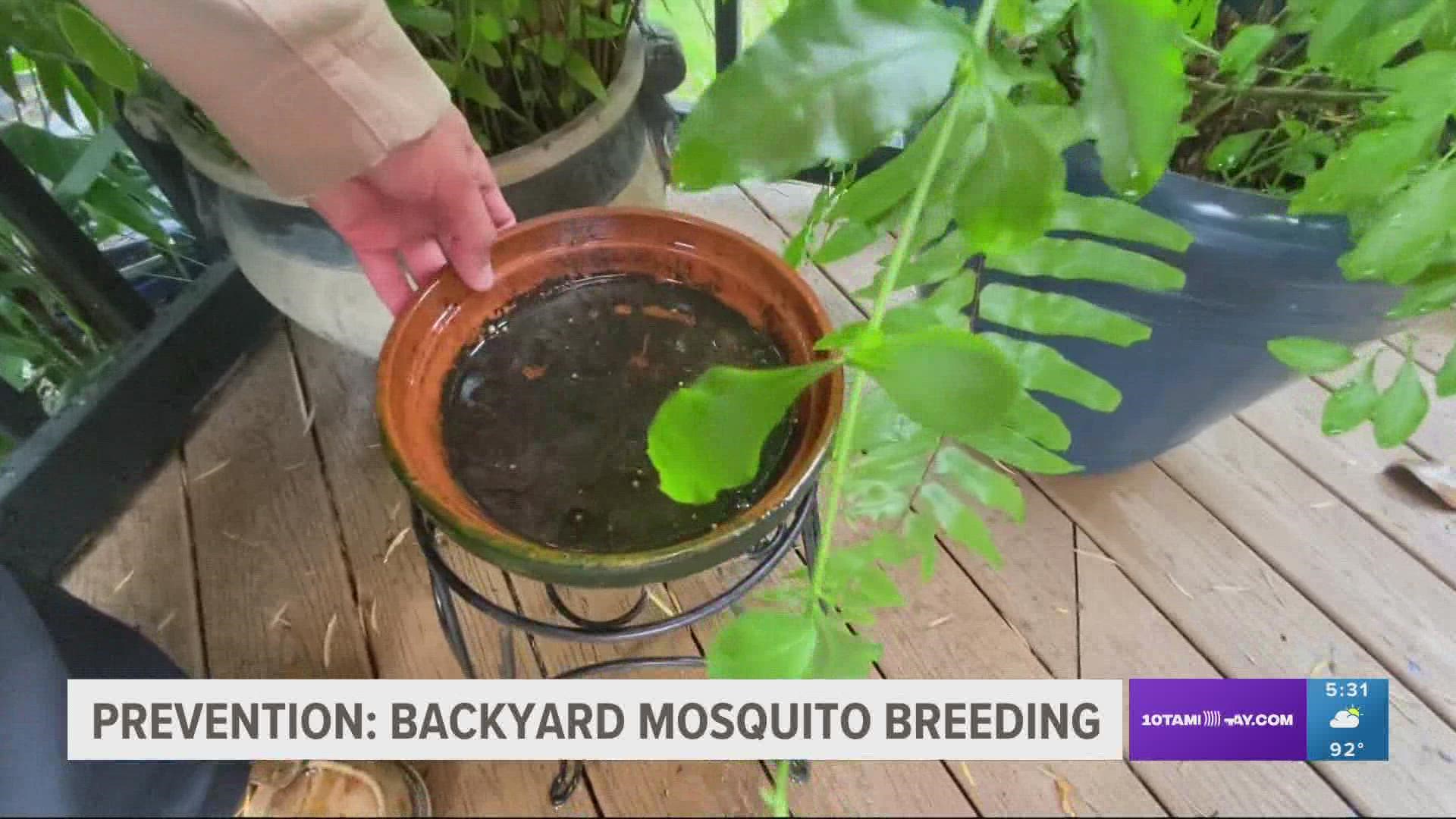HILLSBOROUGH COUNTY, Fla. — If you're not avoiding the outdoors because of the heat, you may be staying inside because of the bugs. Florida's tropical weather means a perfect environment for bugs, like mosquitos, to thrive.
Hillsborough County Mosquito Management does what it can to reduce mosquito populations. But they can't cover every square inch of the entire county, including areas in your backyard. Here's where you come in with simple steps to prevent mosquito breeding where you live.
Hillsborough County Mosquito Management did a walkthrough inspection with 10 Tampa Bay at a Hillsborough County home. Here are the common areas of concern as possible mosquito breeding grounds.
Buckets and containers:
"This is a typical scenario we walk into when we do home inspections," Nick McFaul with mosquito management. "People will have their buckets, or in this case, little containers. [They] should be flipped upside down every day after a rain. In the back of the garage, they'll forget about them. They'll fill up with water and the mosquitos lay their eggs in the bucket."
You'll have to carefully inspect your containers. Some have a lip around the top, when overturned, a small amount of water can still pool. McFaul recommends drilling small holes in the top lip of the container, enabling it to fully drain when overturned.

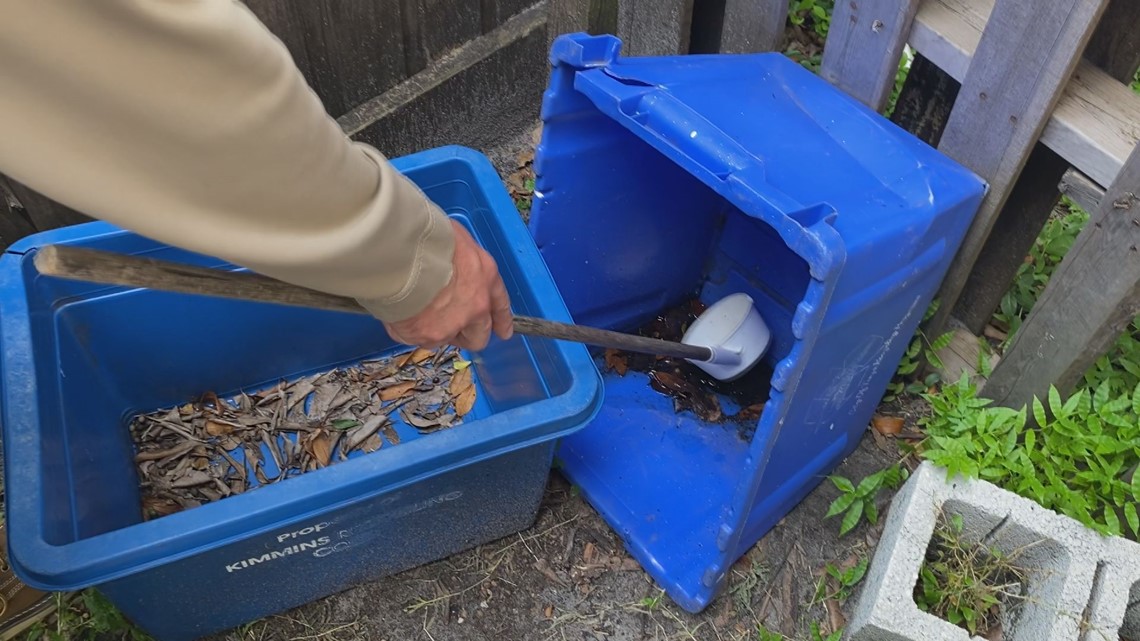
Plants and Plant Pots:
Some plants create an area in which water can collect. Just because it's naturally made doesn't mean creepy crawlers won't take full advantage.
"This is one of the most common plants that we run upon," McFaul said. "This is the bromeliad plant. As you can see, it forms little cups. It'll rain and they hold water in them and the mosquitos will breed."

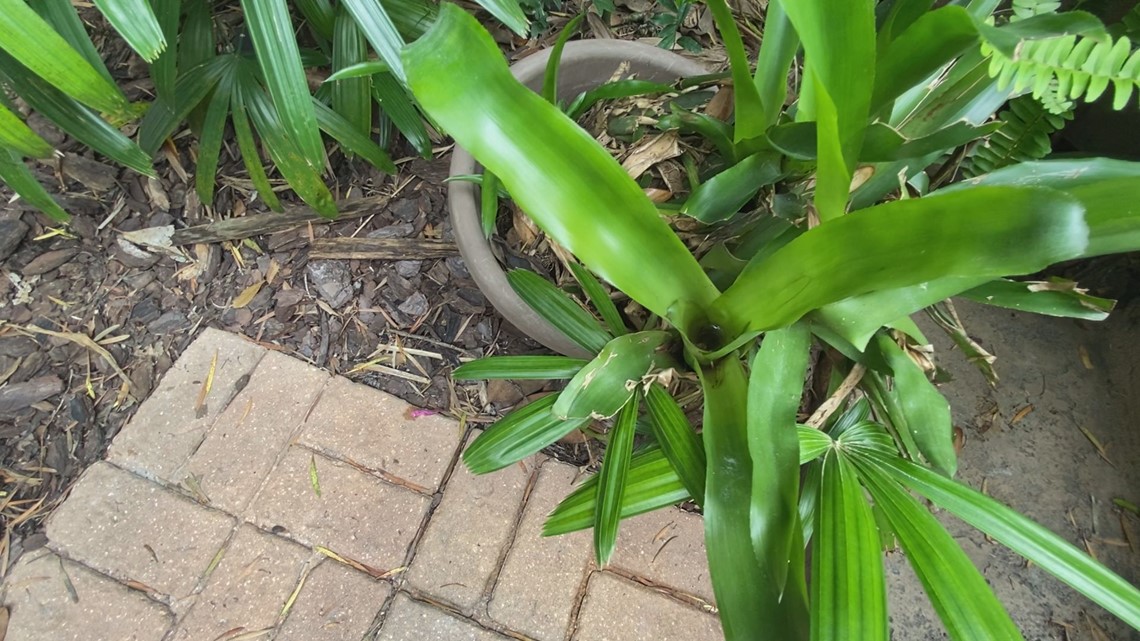
If your outdoor areas are lined with potted plants, that can cause a problem, too. Many planters include a water reservoir underneath the pot to enable the plant to retain more moisture. The plant isn't the only one enjoying that extra water.
"It's a huge problem because mosquitoes don't need much area to breed," McFaul said. "And if you have a little plate around here with just that little bit of water, it'll breed hundreds of mosquitoes and they won't be able to enjoy their backyard."

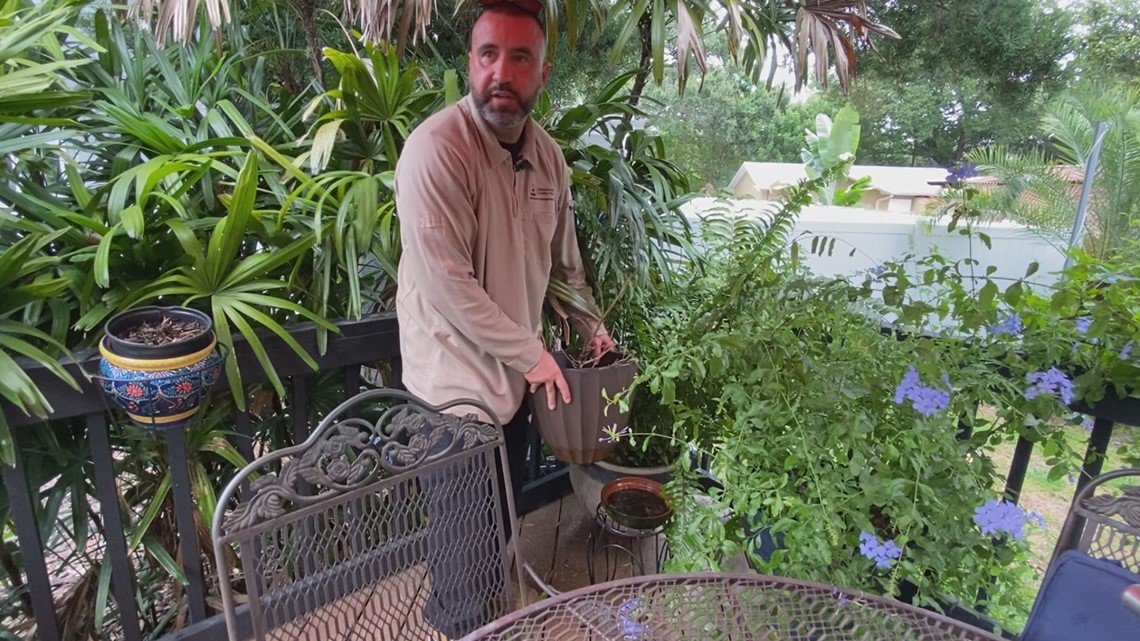
McFaul said it doesn't take a large basin of water to give mosquitos an area to breed. "We've had inspectors go to homes and find it literally in a coke bottle cap. Hundreds of mosquitos breeding in a bottle cap. So something that small can breed many many mosquitoes."
Children's toys:
As our inspection continued, we made our way to the kids' toys. A plastic playhouse had the most water stored in one area. And there were dozens of mosquitos growing in various life phases. While the play sink may be fun for pretend, the reality is it's a perfect way spot for mosquitoes to breed.
"They have these little deviations, a little sink right here. There's no holes in them so when it rains, it fills up quickly," McFaul said. "You'll have massive breeding in something like this... It could be thousands in just that one little container right there."
It doesn't take much. A small puddle, like the one shown below in the tarp of a trampoline cover, is enough for mosquitoes to lay eggs.

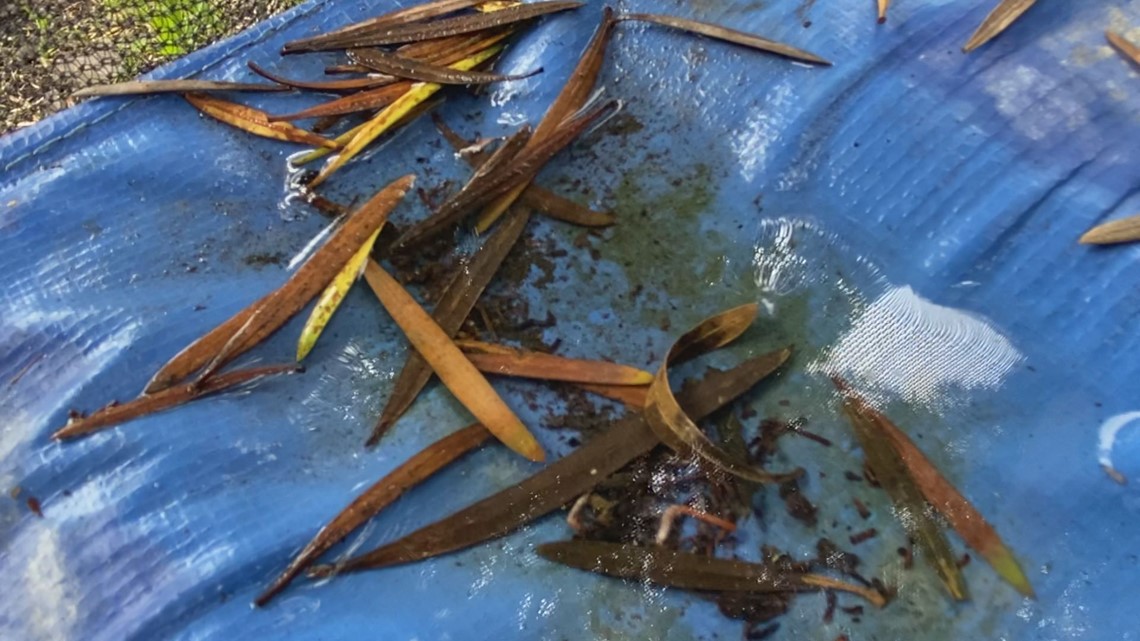
Other areas:
- Rain gutters
- Keep clear of leaves and other debris
- Low areas
- Do not overwater lawns or gardens
- Fountains and bird baths
- Clean or hose out weekly
- Water bowls for pets
- Rinse and fill with fresh water 1 to 2 times a week
- Leaky hoses
- Replace damaged hoses and fix leaky faucets and pipes
- Pools and spas
- Maintain even when not in use
- Remove standing water from the top of pool and spa covers
- Tires
- Drill holes in tire swings
- Recycle used tires or store in a covered area
- Rot holes in trees
- Be aware that water can collect in rot holes, crotches and dead tree stumps
- Check with an arborist for the best way to manage water or fill cavities
- Ponds
- Stock ornamental ponds with mosquitofish
- Keep ponds free and clear of excess vegetation
- Boats
- Cover with a tight-fitting tarp
- Trash bins
- Keep lids shut tight and remove any water that may accumulate inside
Hillsborough County offers free resources to residents, including inspections to help detect and clear areas where mosquitoes can breed. To learn more, click here.

